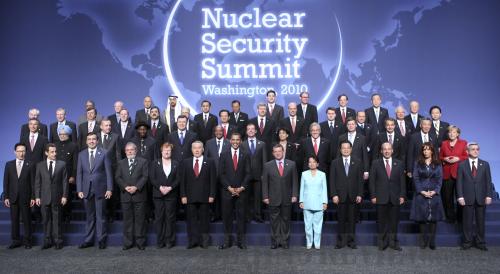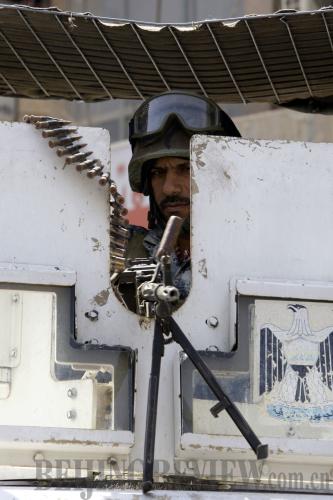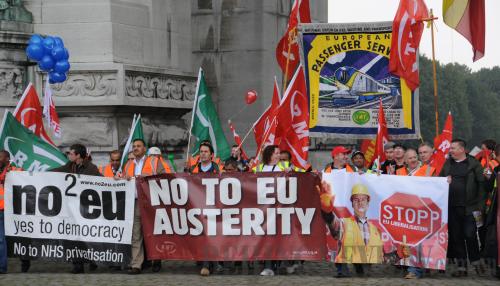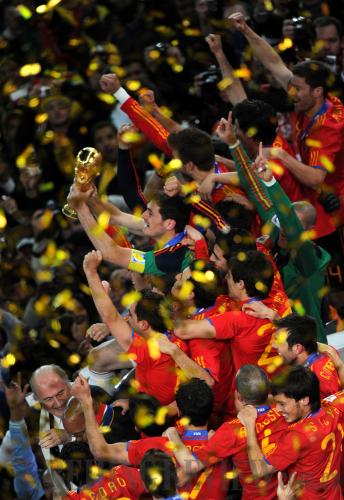|
The Yemeni wing of Al Qaeda gained prominence in 2010, forcing the United States to intensify counterterror efforts in that country. The threat of terrorism continued to loom large, as evidenced by suicide bombings in Moscow subway stations, mail bomb attacks in Europe and frequent terrorist attacks in Pakistan.
Nuclear Security Summit
 |
|
(LI XUEREN) |
Leaders pose at the first ever Nuclear Security Summit on April 13. On April 12-13, representatives from 47 nations—mostly heads of state or government—convened in Washington, D.C. to address non-conventional nuclear threats.
Before the summit, on April 8, the United States and Russia signed the new Strategic Arms Reduction Treaty (START) to cut stockpiles of deployed strategic nuclear weapons. On December 22, the U.S. Senate ratified the new START treaty.
U.S. Military Operations Drag On
 |
|
(XINHUA/AFP) |
An Iraqi policeman mans a machine gun at a checkpoint in Baghdad on September 2, a day after the U.S. military formally ended combat operations in Iraq.
Despite the withdrawal of combat troops, 50,000 U.S. soldiers remained in the country to support Iraqi forces in counterterror missions and to protect U.S. civilians. In 2010, the war in Afghanistan also became the longest war in U.S. history.
Post-Crisis Struggles
 |
|
(ZHANG WEI) |
Workers in Brussels protest the EU's austerity measures on September 29.
In an attempt to address the sovereign debt crisis, European nations resorted to financial austerity measures, spurring widespread protests. Moreover, the EU granted loans to Greece and Ireland, bailing the two crisis-ridden countries out of debt.
The United States adopted a quantitative easing policy later this year to stimulate its economy, but the policy was widely blamed for causing global inflation and hindering the recovery of the world economy.
While developed countries continue to struggle in the aftermath of the global financial crisis, emerging powers are playing a greater role in world economic governance. The IMF and the World Bank have transferred more quotas and greater voting power to developing countries. Notably, China has become the third largest shareholder in the World Bank and the third leading voice in the IMF.
Chilean Miners' Rescue
Mario Gomez, 63, the oldest of the Chilean miners trapped in the collapsed San Jose copper mine, 800 km north of Santiago, emerges on October 13. The world watched as all 33 miners were successfully rescued after a 10-week ordeal.
A South African World Cup
 |
|
(XINHUA) |
Spain's Captain Iker Casillas hoists the World Cup trophy after his team's victory in Johannesburg on July 11. The event, the first World Cup tournament held in Africa, helped thrust the continent onto the world stage. | 